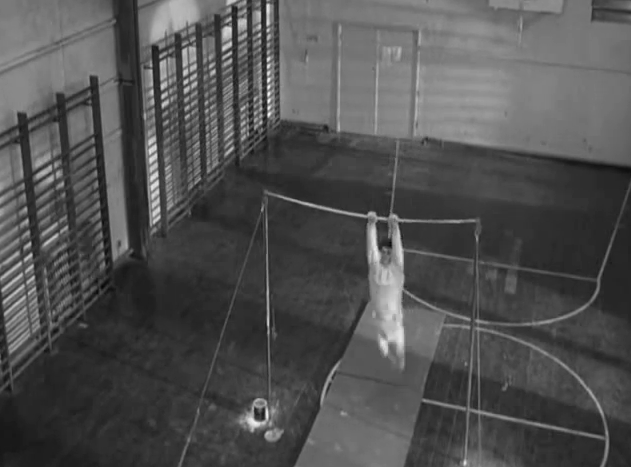Spaced is a British TV sitcom that began in 1999 and it follows two 20 something year old that happen to be flat hunting. The clip below presents a standard view on youth from the shows view point:
The ethic towards work is presented as low and as through they get by just doing the jobs in order to pay the bills when they're needed, not feeling the need to enter a career path, or alike. This proves similar to how the ethic is presented in Human Traffic with almost all the characters. The clip shows how she is happy to raise her voice and wrong opinion at times, calling out 'fuck you' to customers at the bar, this is presented in the clip as a moment of pride almost to her.
The laziness is even presented in the clip above where very little action is happening both in shot and with the movement of the camera, presenting their lifestyle. Daisy is in the clip lying down flat on the sofa, visually presenting the idea of a "couch potato". Meanwhile their friend is an over enthusiastic lollipop man.
In comparison however, both Daisy and Tim are happy to find work and still go searching for it, despite having the wrong ethic, they at least know that it's the right thing to do and a requirement for their age and basic needs, compare this with Human Traffic where the idea of work to Moff for example is unbearable and he is aware how much he is going to hate it.
Loneliness of the Long Distance Runner is a film from 1962 and the audience is presented with a lead character that has been placed under detention and sentenced to a boy reformatory after being caught stealing from a bakery.
The opening of the clip above shows the physically demanding activities that the boy is pushed through as punishment for stealing, the use of the sound of a single leader shouting at them invokes the idea of a strong hierarchy of age, power and dominance over the younger rebellious men. Man close ups are used in this clip in order to show visually the struggle to keep up.
The commanding tone of the superiors shows their strength and power over them, portraying youth as weak and struggling amongst them or in their presence, when under their command. Visually however the below still presents the hierarchy very simply as they all have their hands behind their backs, standing still at the command of the superior officer:
Once outside and off the presence of the authority figures, he is free. He runs leaping around, taking time to take in the beauty of his surroundings. He is joined by a non diegetic up beat swing jazz soundtrack that is blissful to listen to when accompanied with the visuals, putting the viewer in the position of this free runner.
Youth are presented as weak in many ways in this case and respectful to their superiors whom are of greater ability than them, however the superior are giving them a chance to co operate and work amongst them, which is one of the themes that Human Traffic faced with alienation from other generations.
'If' is very easily linked in and applicable to what is seen in Loneliness of the Long Distance Runner, we first see an authority figure in the way of the PE teacher, shouting at them and making them jump over the box.
However, later we encounter a gymnast who is practising, some of the students all stop and stare to watch the talented gymnast. It's a fairly surreal moment however it captures this essence of admiration to him and the skill it requires. The slow motion scene with the odd music soundtrack creates a moment that links the characters in an anonymous way still.






A good analysis of the themes found throughout Cesco. Also consider how the youth characters crave freedom from authority in some way and how/why this differs from clip to clip (think about time of production).
ReplyDelete